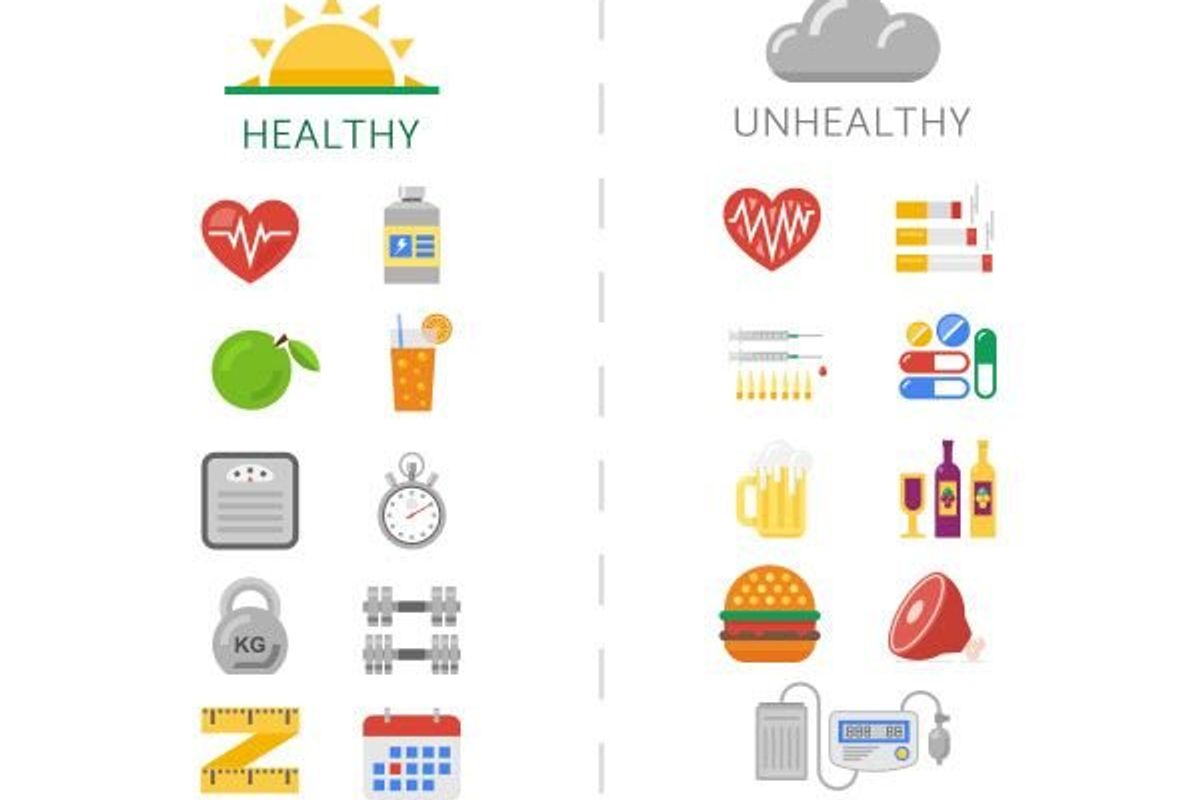

Sheryl Kraft
Sheryl Kraft, a freelance writer and breast cancer survivor, was born in Long Beach, New York. She currently lives in Connecticut with her husband Alan and dog Chloe, where her nest is empty of her two sons Jonathan. Sheryl writes articles and essays on breast cancer and contributes to a variety of publications and websites where she writes on general health and wellness issues. She earned her MFA in writing from Sarah Lawrence College in 2005.
Full BioLearn about our editorial policies
Medically Reviewed
When it comes to effective health messages, focusing on what to do, rather than what not to do will put you on the road to success. That's what a new study out of Cornell finds. A positive message, researchers say, works better than a negative one in getting people to get people to adopt healthy behaviors.
Although this study by lead author Brian Wansink, PhD, focused on nutrition (as in, “Don't eat that cookie because it will make you fat,” vs., “Eat an apple so you can stay healthy,”), I think this reasoning can apply to most things.
Although it seems obvious that a positive message would work better than a negative one (it is, isn't it?), so many times those negative messages have a way of getting stuck in our heads. Then there's little or no room for the positive messages to take root.
Here are five common "don'ts" we're hearing lately, along with the flip-side "dos," which we'd do well to remember.
1. DON'T: Sit too much. The more time people spend sitting, the more likely they are to die prematurely. Excessive sitting has been linked with being overweight and obese, type2 diabetes, some types of cancer and even premature death, according to studies.
DO: Stand up every 30 minutes. Remind yourself to take active breaks from sitting: stand on the train or bus; take the stairs rather than the elevator; walk up the escalator rather than standing still; stand or walk around while on the phone; alternate working while seated with working while standing.
2. DON'T: Skimp on sleep. It's tempting—and common—for many of us to try to stretch our days by stealing from our sleep. But sleep deprivation can have serious health consequences, like obesity, heart disease, diabetes, high blood pressure, headaches, depression and delayed reaction times.
DO: Get seven to eight hours of sleep each night. That's the average amount most people need. You may need more or less than that, but find what your body needs and aim to get it consistently. Sleep helps the body repair itself, is necessary to consolidate memories and information, can put you in a better mood and can help maintain your weight.
3. DON'T: Drink diet soda. Researchers who studied a large group of healthy, postmenopausal women in the United States found that those who were "heavy consumers" of diet drinks might be more prone to heart attacks, blood clots and other cardiovascular problems. Other studies have linked diet sodas to abdominal obesity in adults over 65 and an increase in sweet cravings.
DO: Spruce up your water. If you don't like the taste of plain water, add your favorite fruits and veggies, like cucumber, strawberries, oranges, lemons, mint or limes, . Or freeze chopped-up fruit in an ice cube freezer tray and add to your plain water. Drinking a glass of water before eating a meal can help you feel fuller and may have a positive effect in cutting your portions, thus helping you lose weight.
4. DON'T: Snack between meals. Eating often throughout the day may make people gain weight and can make you even hungrier, some experts say. We should eat three "proper" meals a day, they say.
DO: Work snacks into your daily quota. The reality is that more people are snacking, according to the market research group The NPD Group. Snacking can help avoid that "I'm starving—what's for dinner?" tendency to overeat or grab something unhealthy in a desperate attempt just to fill up. If you're a snacker, make those snacks healthy: fruit, a handful of nuts, edamame, some yogurt or a nutrition bar containing healthy grains like amaranth, quinoa and oats are all smart choices. (According to a study published in JAMA Internal Medicine, with each additional daily serving of whole grains, there's a 5 percent lower mortality risk and a 9 percent reduction in death from cardiovascular causes.) The trick with snacking is to keep calories between 100 and 200 so your total daily caloric intake doesn't skyrocket.
5. DON'T: Exercise for less than 30 minutes each day. That's the minimum time experts recommend working out each day for weight loss and fitness.
DO: Split your exercise into 10-minute increments. One study found that women who did this were more likely to exercise consistently. And these women lost more weight after five months than the women who exercised for 20 to 40 minutes at a time. Breaking exercise into small(er) chunks can give you a measure of achievement and alleviate the guilt that comes with skipping it altogether.
Move over, don'ts! Let's make room for those positive "dos" and keep them top of mind in our everyday routines.
More Healthy Reading:
Another Reason to Get a Good Night’s Sleep
Diet Soda? Think Twice
5 Reasons You Can Lose Weight With Peanuts
You might be interested in





